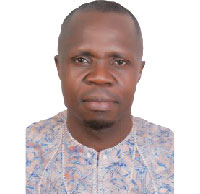There are three non-complex books about Nigeria, written by foreigners, which, at a time like this, I am persuaded to re-visit. This is not a book review; but as the late grandiloquent Nigerian politician, Ozumba Mbadiwe, has often been quoted as saying, “when the come comes to become”, we must re-visit the past within the context of the present, for the sake of the future. The three books are: This House Has Fallen, by Karl Maier; Nigeria, Dancing on the Brink, by John Campbell; and My Nigeria: Five Decades of Independence, by Peter Cuncliffe-Jones.
Sam AkpeAs I write this, someone I can’t remember is with my copy of Maier’s book. I may need to budget for a fresh copy.
The book is a must-read for everyone interested in the story of Nigeria; what brought us to this point, and how we can pull back from the cliff. It is good for us to hear from outsiders whose stakes here are marginal; so that we can reason properly. Maier captures Nigeria, not from an arm-chair position, but by taking a walk on the streets and highways.
What I probably enjoy most about Cuncliffe-Jones’ book is the simple, descriptive prose; more like a poetic rendition. Add this to a touch of non-complex historical garnishing with daring details, and you will understand why it has earned my recommendation. I have met him just once, that was when I served as The Punch correspondent in Port Harcourt in the late 1990s; and he was the head of AFP bureau in Lagos. But we used to speak quite often on phone when he would call to cross-check some information about events in Port Harcourt.
Here is a paragraph of his arresting description of Lagos: “And Lagos, my Lagos, the city where I came to live in 1998, is this clash of these two worlds: a permanent collision of humbling wealth and staggering poverty, soaring hope and frustrated ambition, frightening chaos and unruly order; a city always on the edge of mayhem and always offering the hungry a last chance, a hope, a dream of success.”
Anytime I read the book: Nigeria, Dancing on the Brink, I am left with a foul thought, mostly because I don’t know whether to be mad at the author for telling a better-hidden truth about Nigeria, or at our rulers who brought us to this sorry state. The book is a beautiful assemblage of facts; some little but damaging assumptions, and so much of bitter truths which a lot of people would have preferred not to be so told in such blunt narratives.
I must confess that the book would annoy any politician who may care to read it, especially former state governors who did not only rig elections that took them to office, but stole so much money they would never finish.
In the book, Campbell describes Nigeria, on his arrival in 1988, as “Africa’s fascinating complexities”. And that’s the truth. Fourteen years later, when he returned as Ambassador, in a tone that sounds pretty undiplomatic and derogatory, he says, he met a “country that has been portraying itself as a civilian democracy….” Somewhere in the book, he again, disparagingly, describes our long-lost but recovered democracy as “nominally civilian government”.
There is an interesting conclusion in the book; a pointer to why another national conference is holding in 2014: a repeated attempt to find solutions to avoidable impasse. He says Nigerians have mastered the art of dancing on the precipice without falling over. But I ask: for how long will this continue? Are we not falling over already, with the nation hedged in by blood-thirsty monsters? I completely disagree with the so-called elite cited by Campbell who say Nigeria is too big to fail.
Yes, Nigeria is big, so it may not fail easily, but it could crash; at the rate it is being bloodied. We must ignore such false confidence meant to justify corrupt practices because it encourages “the elite’s unwillingness to address the issues troubling the country and may even promote their irresponsible behaviour, such as the manipulation of ethnic or religious conflicts for their own narrow political advantage, over which they soon lose control”.
Is Nigeria a failed state as screamed in an alarming front-page editorial by a regional (North) newspaper two weeks ago? Pauline Baker of the Fund for Peace said in 2006 that though there is no universal definition of a failed state, there are certain attributes that scholars agree upon, “such as losing control over the territory that you have jurisdiction over, not having full physical control over it, or not having a monopoly on the use of force because there are rival militias or rebel groups that have operated in the country, or lacking legitimacy for a large proportion of the population”.
The message in these books is that Nigeria might be a failed state, soon, except we stop playing ethnic and religious politics with our collective destiny; and except statesmen act like elders. Politicians must know that they need Nigeria for their enterprise to boom. Most importantly, President Goodluck Jonathan must do something definitive with the report of the national conference sitting in Abuja. The time for business-as-usual is over.




